AI Applications
Artificial Intelligence and Healthcare: A New Frontier?
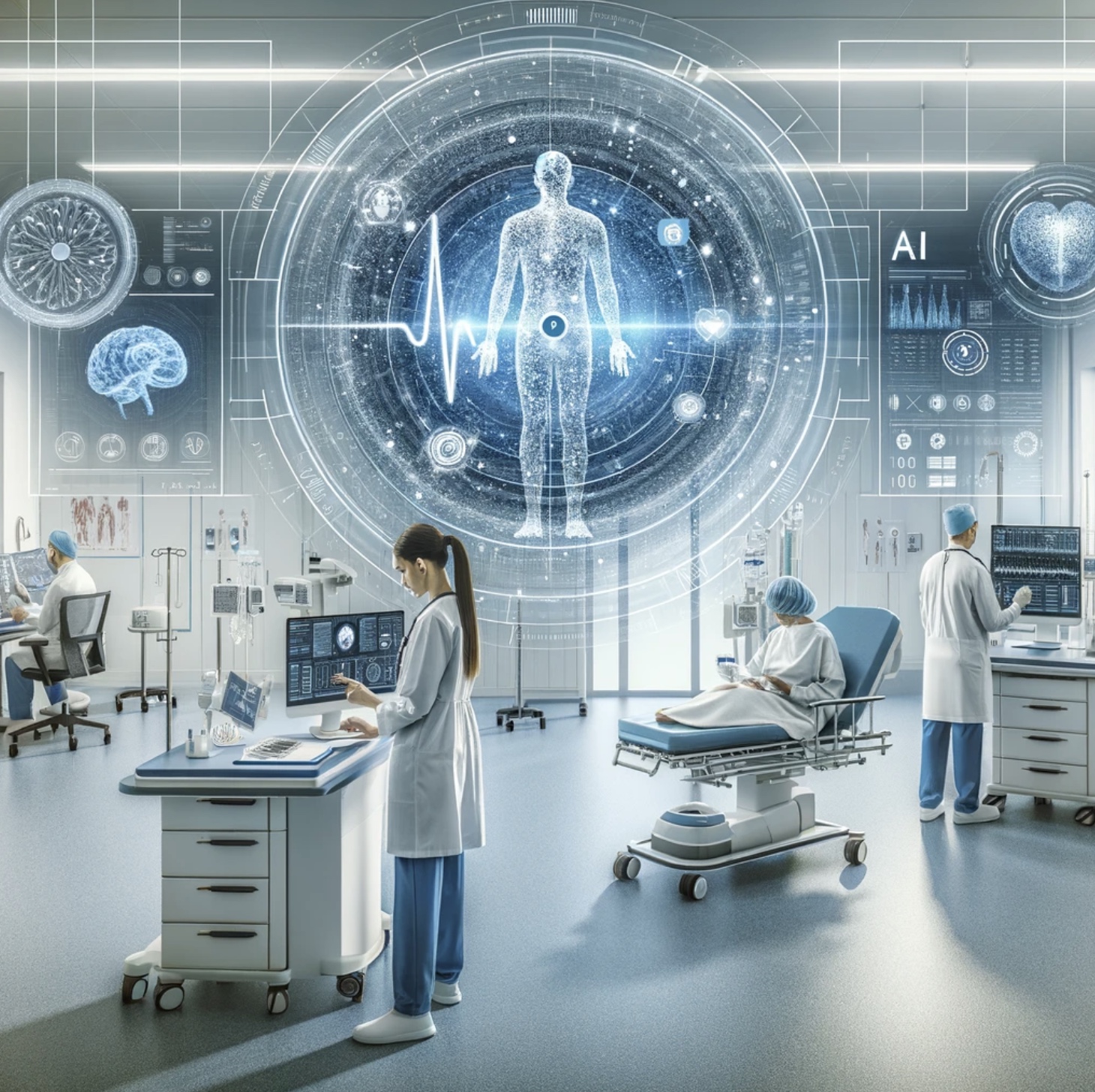
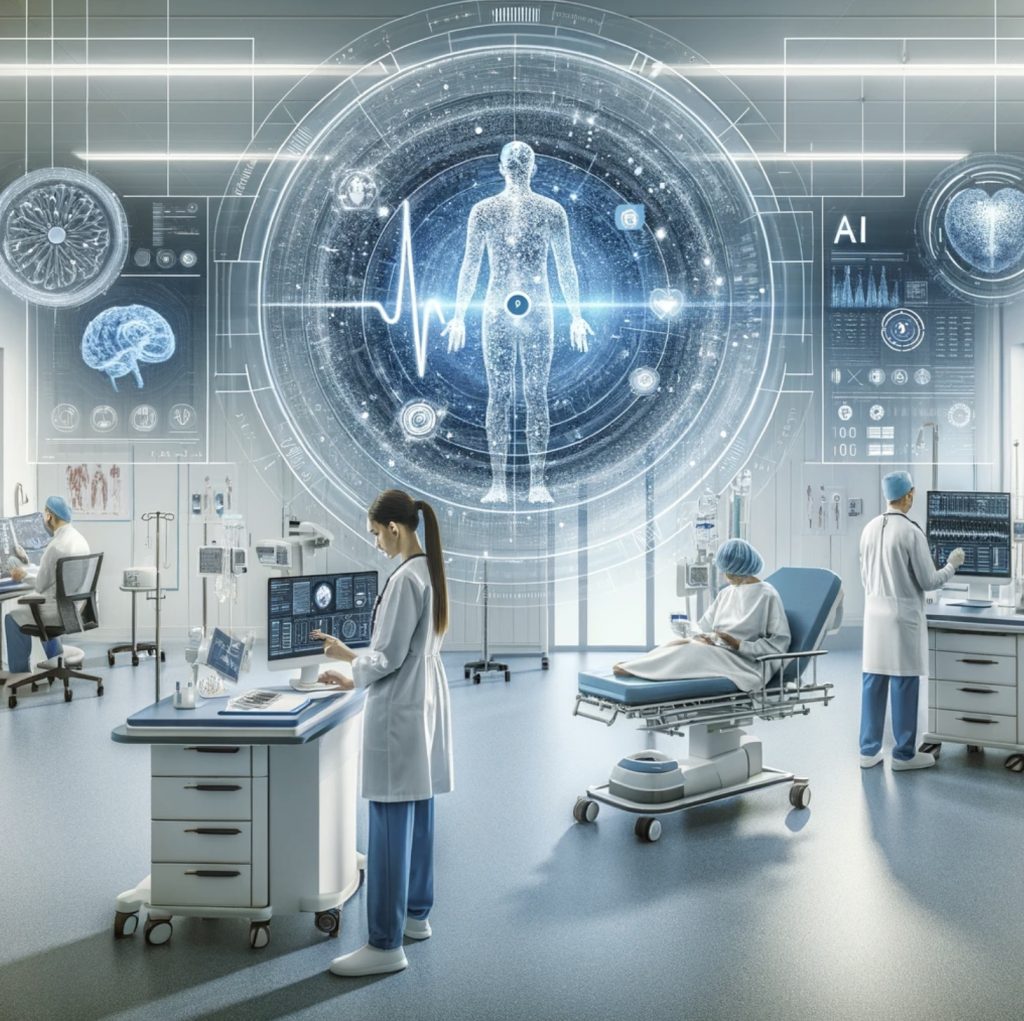
Have you noticed how healthcare is changing? A lot of that change is happening due to the use of Artificial Intelligence in the healthcare industry. Imagine walking into a clinic where they can quickly figure out what’s wrong and how to treat you. Or, think about your doctor having a super-smart assistant that can read through tons of medical info in seconds to find the best treatment for you. That’s what’s happening right now in healthcare, thanks to AI.
Of course, it’s not perfect yet. There are big questions about keeping patient info safe and making sure computers don’t make mistakes. And we all agree, nothing can replace the care you get from real people – your doctors and nurses.
So, what’s next? How will AI keep changing your visits to the doctor or hospital? Let’s dive in and see what AI is doing for your healthcare and what it means for the future.
Artificial Intelligence in healthcare – it’s not just Sci-Fi anymore!
Artificial intelligence and deep learning are right here, powering up healthcare like never before. The application of AI in healthcare is just fascinating – from drug manufacturing, to medical imaging and fast diagnosing – you name it!
Drug manufacturing
AI is significantly impacting the pharmaceutical world by accelerating the development of new drugs. It dramatically reduces the time and financial investment needed, enabling researchers to discover effective treatments faster than ever before. AI systems can predict how different drugs will react in the body, to avoid adverse effects and ensure safer treatments for a range of conditions.
Optimizing clinical trials
The selection process for clinical trial participants is crucial yet time-intensive. AI streamlines this by analyzing vast amounts of genetic data to identify ideal candidates efficiently. Startups like A2A Pharmaceutical are leading the way, utilizing AI to enhance the selection process. This will ensure faster, more accurate trial outcomes, and ultimately, better drugs reaching the market sooner.
Smart handling of health records
Imagine if your doctor could zap through your entire medical history and your family’s health background in seconds – well, with AI, they can! AI helps sort through all those files and notes to make sure your doctor knows exactly how to help you best. This ensures personalized and timely care, making medical consultations more efficient and productive.
Personalized, custom care
AI is tailor-fitting healthcare like never before. By analyzing data from numerous sources, AI systems can provide personalized healthcare recommendations, ensuring treatments are more effective and accessible. This shift towards personalized medicine signifies a move away from a one-size-fits-all approach, leading to better health outcomes and patient satisfaction.
Prediction of disease development
How cool would it be if we could know about an epidemic before it even happens? Well, AI is on it! AI extends its predictive capabilities to public health by analyzing real-time data from various sources, including social media. This allows for the early detection of disease outbreaks, enabling quicker responses to prevent widespread transmission. This predictive power showcases AI’s potential to not just treat but also prevent illness on a global scale.
Monitoring health using wearables and personal devices
The future of health monitoring with wearables and personal devices promises even greater advancements, with the potential for detecting a wider range of health indicators. This will include blood pressure, blood sugar levels, and even early signs of diseases. As technology evolves, these devices are set to become an integral part of our everyday lives, transforming the landscape of personal health care and management.
Disadvantages of AI integration in healthcare
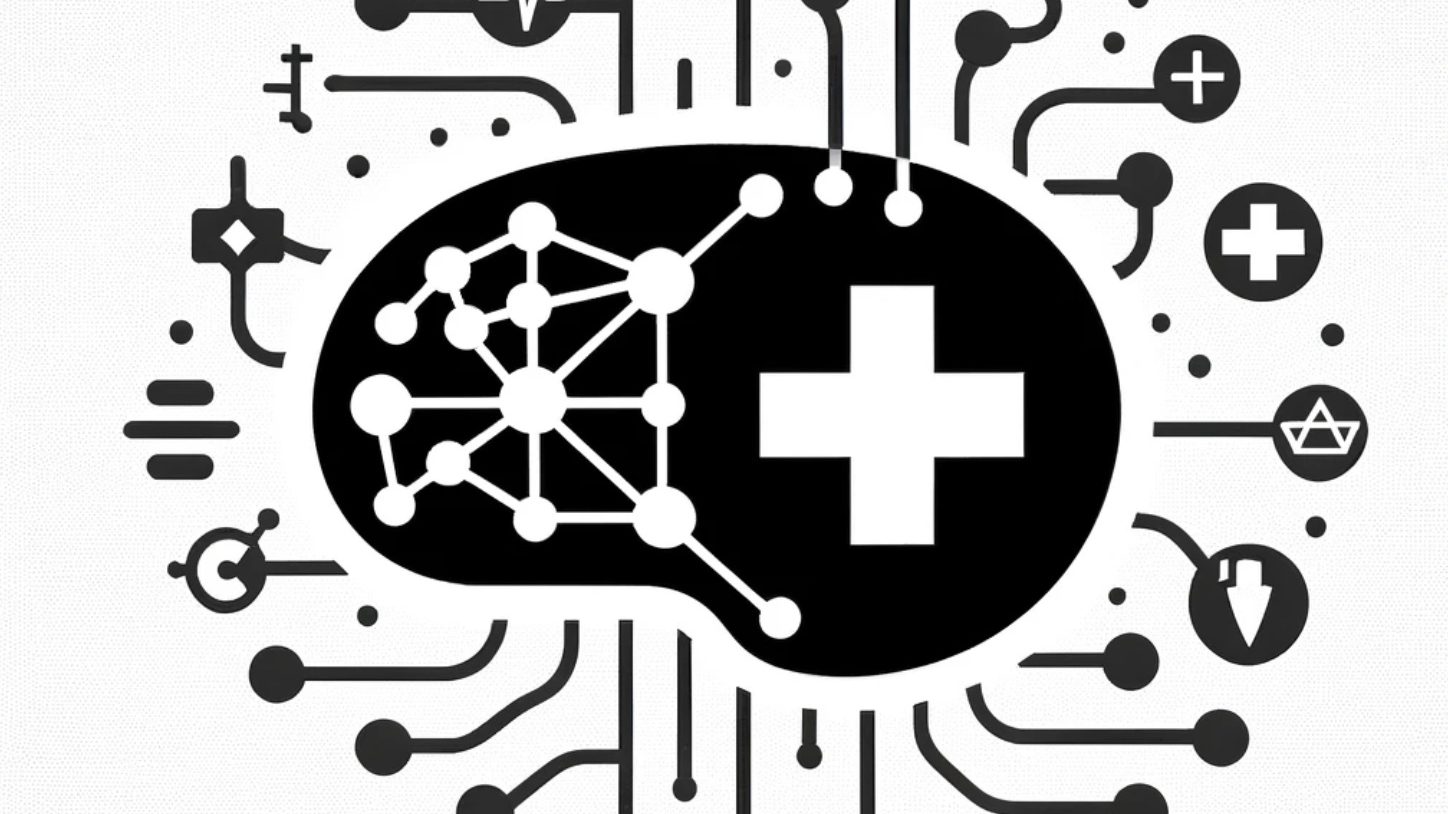
Data Privacy and Security
In the era of digital health, patient data is gold. However, it’s a treasure trove locked within layers of privacy concerns. A staggering 41% of healthcare executives admit that data security is the top barrier to adopting AI in healthcare. Imagine the implications of a data breach when it’s not just your social security number at risk but your entire genetic blueprint. This is the precarious edge where healthcare AI teeters, necessitating stringent cybersecurity measures to protect the sanctity of patient data.
Bias and Inequality
AI does not operate in a vacuum; it mirrors the biases present in its training data. A study revealed that certain AI systems showed racial bias more likely to be healthier than black patients, a glaring reflection of racial disparities embedded in healthcare data.
Lack of Transparency and Explainability
AI algorithms, especially those based on deep learning, can be highly complex and not easily understood by humans. This lack of transparency and explainability can be problematic in healthcare, where professionals need to understand the reasoning behind AI-driven decisions, particularly in critical situations affecting patient care and outcomes.
Loss of Human Touch
Amidst the technological triumphs, the essence of healthcare — the human touch — risks being overshadowed. The overwhelming majority of patients value personal interaction with their healthcare provider as a crucial component of their care. The digitalization of care must not come at the cost of compassion and empathy, which are irreplaceable facets of healing and recovery.
Regulatory and Ethical Challenges
The rapid advancement of AI technologies can outpace the development of necessary regulations and ethical guidelines, leading to uncertainty and potentially unsafe implementations. Navigating the regulatory landscape for AI in healthcare can be complex, varying significantly from one jurisdiction to another.
Addressing the Healthcare Staffing Crisis with AI
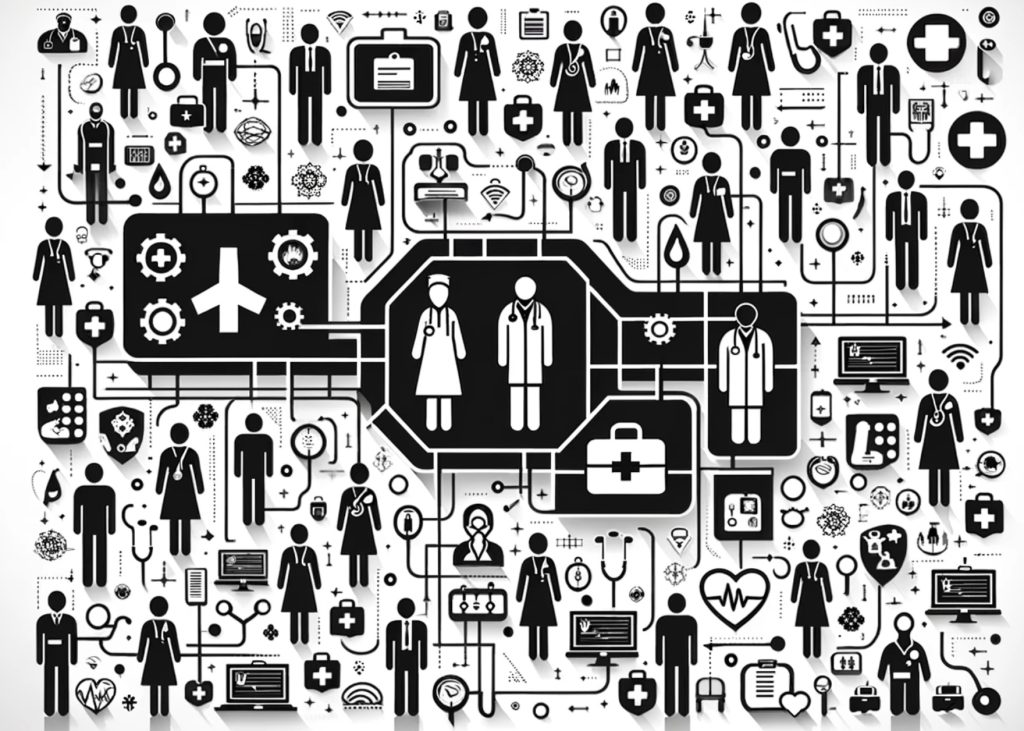
The looming crisis in healthcare staffing, particularly intensified by the global pandemic, has accelerated the search for innovative solutions. Artificial Intelligence, especially generative AI, is emerging as a powerful ally in this battle, offering scalable solutions that could revolutionize chronic care management and alleviate operational burdens. Here are just a few examples of how AI in healthcare could address staffing crisis and mitigate the shortage of resources:
Transforming chronic care management
Chronic care demands continuous and comprehensive management, a task that grows increasingly challenging with staffing shortages. Generative AI steps into this gap with the ability to personalize patient care plans, monitor patient status through data analysis, and predict exacerbations before they occur. By leveraging patterns from vast datasets, AI can offer individualized care suggestions, dietary plans, or medication adjustments, thereby reducing the need for constant human supervision. This not only optimizes patient outcomes but also allows healthcare professionals to focus on more critical cases.
Streamlining operational tasks
Administrative duties consume a significant portion of healthcare professionals’ time, contributing to burnout and reducing time available for patient care. AI, particularly through automation and natural language processing (NLP), can undertake tasks such as scheduling, billing, and updating patient records. By automating these routine tasks, healthcare facilities can operate more efficiently and ensure that staff can concentrate on their primary roles of providing care.
Bridging the communication gap
Generative AI can also revolutionize patient-provider communication, offering 24/7 support through AI-driven chatbots and virtual assistants. These tools can answer patient queries, provide health reminders, and even triage patients to the appropriate level of care, thereby reducing unnecessary hospital visits and allowing staff to prioritize urgent cases.
Enhancing training and support
With the help of AI, training and onboarding new staff can become more efficient and less time-consuming. AI-driven simulations and educational platforms can provide personalized learning experiences, speed up the training process, and keep staff updated on the latest healthcare protocols and procedures.
In wrapping up, the combination of Artificial Intelligence and healthcare holds immense potential to transform healthcare management, particularly when there are not enough hands to cover all the work. It aims to ensure the right care reaches the right people at just the right moment, all while easing the load on our human healthcare heroes. Yes, there are challenges to navigate, such as safeguarding patient information and ensuring fair treatment for all by technology. But imagine a future where healthcare focuses more on personal connections and less on paperwork, where every patient receives the care they need, and healthcare workers have the space to breathe. This vision is just around the corner, as we work together to smooth out the bumps and harness AI’s full potential for a healthier tomorrow.
AI Applications
10 Uses of Artificial Intelligence in Mental Health
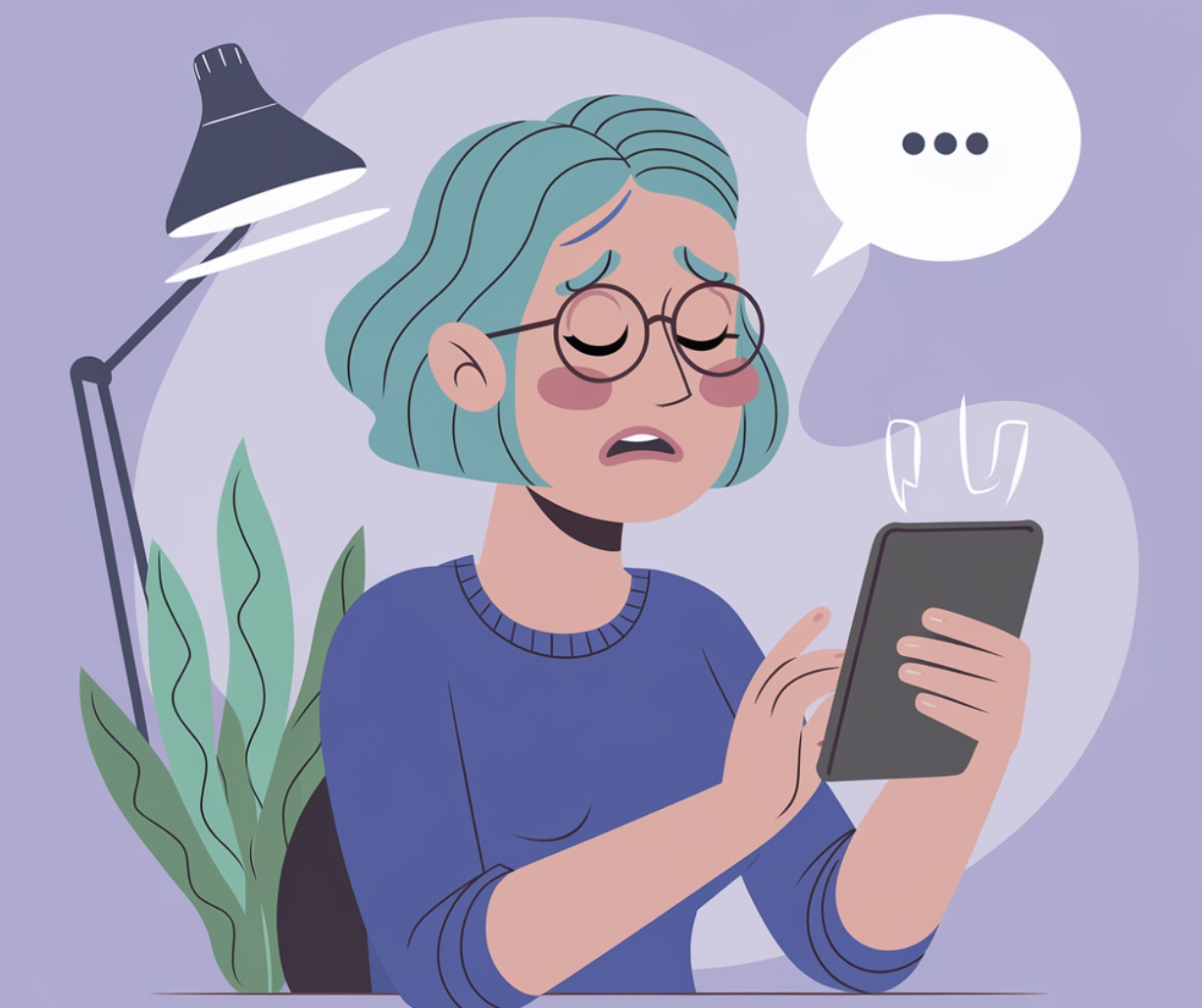
AI is already changing the way we live and work, and now it’s transforming mental health care, too. And, some say AI for mental health is actually making a real difference.
With the most obvious application being AI chatbots for mental health, of course. Using those, people can opt for a meaningful conversation with an AI chatbot instead of waiting weeks to see a therapist. And not just a chatbot – the one that understands how they feel and offers real support with managing anxiety, stress and depression.
The technological transformation couldn’t come at a better time. We are in the middle of a mental health crisis. In the U.S. alone, one in five adults—over 50 million people—experienced a mental illness in 2019-2020, according to Mental Health America’s 2023 report. Globally, around 280 million people are battling depression, based on the latest data from the World Health Organization. The demand for mental health care is massive, and traditional solutions aren’t just enough.
So, how exactly is Artificial Intelligence changing mental health care? Let’s dive into ten ways it’s revolutionizing the field.
1. Can AI Chatbots Really Help with Emotional Support?
Yes! AI-powered chatbots like Woebot and Wysa are designed to help people manage stress, anxiety, and other emotional challenges. These bots can have real conversations with you, offering techniques and exercises based on cognitive-behavioral therapy (CBT). They’re available 24/7, so whether you need a chat at 3 AM or during a lunch break, they’re there for you.
2. How Does AI Detect Mental Health Issues Early?
AI is great at spotting patterns—sometimes even before we realize something’s wrong. Researchers are developing AI tools that can analyze speech, facial expressions, and even social media activity to detect signs of depression or anxiety. For example, a study from JMIR Mental Health found that AI could identify early markers of depression just by analyzing social media posts.
3. Can AI Help Me Find the Right Therapy Faster?
Absolutely. AI can analyze your specific needs and help therapists personalize treatment plans. Platforms like Lyssn use AI to assess therapy sessions, giving therapists insights that help them adjust and improve their approach based on what’s working best for you.
4. Can AI Predict When Someone Might Be at Risk for Suicide?
Yes, AI can be a powerful tool for suicide prevention. By analyzing electronic health records and other data, AI models can identify people at high risk. A study in Nature Human Behaviour showed that AI algorithms could predict suicide attempts with impressive accuracy, giving healthcare providers a chance to step in early.
5. Can Virtual Reality (VR) Help with Mental Health Treatment?
It can! Virtual reality (VR) combined with AI is being used to treat conditions like PTSD and phobias through exposure therapy. Companies like Psious create VR environments where patients can safely confront and overcome their fears in controlled, virtual settings.
6. How Does AI Track Mental Health Trends Using Social Media?
AI is great at combing through large amounts of data, like social media posts, to pick up on mental health trends. This helps organizations like the World Health Organization monitor public mental health in real time, potentially identifying crises or spikes in anxiety and depression across communities.
7. Can AI Understand Emotions Through Voice or Facial Recognition?
Yes! AI systems can analyze your voice tone and facial expressions to detect emotions you might not even be fully aware of. For example, Emotion AI by Affectiva looks at facial cues to offer insights into your emotional state, helping people become more aware of their feelings.
8. How Do AI Apps Make Meditation More Effective?
Apps like Headspace and Calm use AI to tailor mindfulness and meditation exercises based on your progress. These apps learn what works best for you over time and can adjust sessions to better suit your mood and needs.
9. Can AI Improve Mental Health Research?
AI is making huge contributions to the research in the field by analyzing large datasets to uncover patterns and connections that humans might miss. Organizations like the National Institute of Mental Health (NIMH) are using AI to develop better treatments and interventions by studying complex mental health conditions more efficiently.
10. Can AI Help Train Mental Health Professionals?
It sure can! AI simulations and virtual patients are being used to train mental health professionals. Platforms like Kognito offer role-play simulations that help clinicians practice conversations about mental health, making training more interactive and practical.
Why Is There Such a Growing Need for AI in Mental Health?
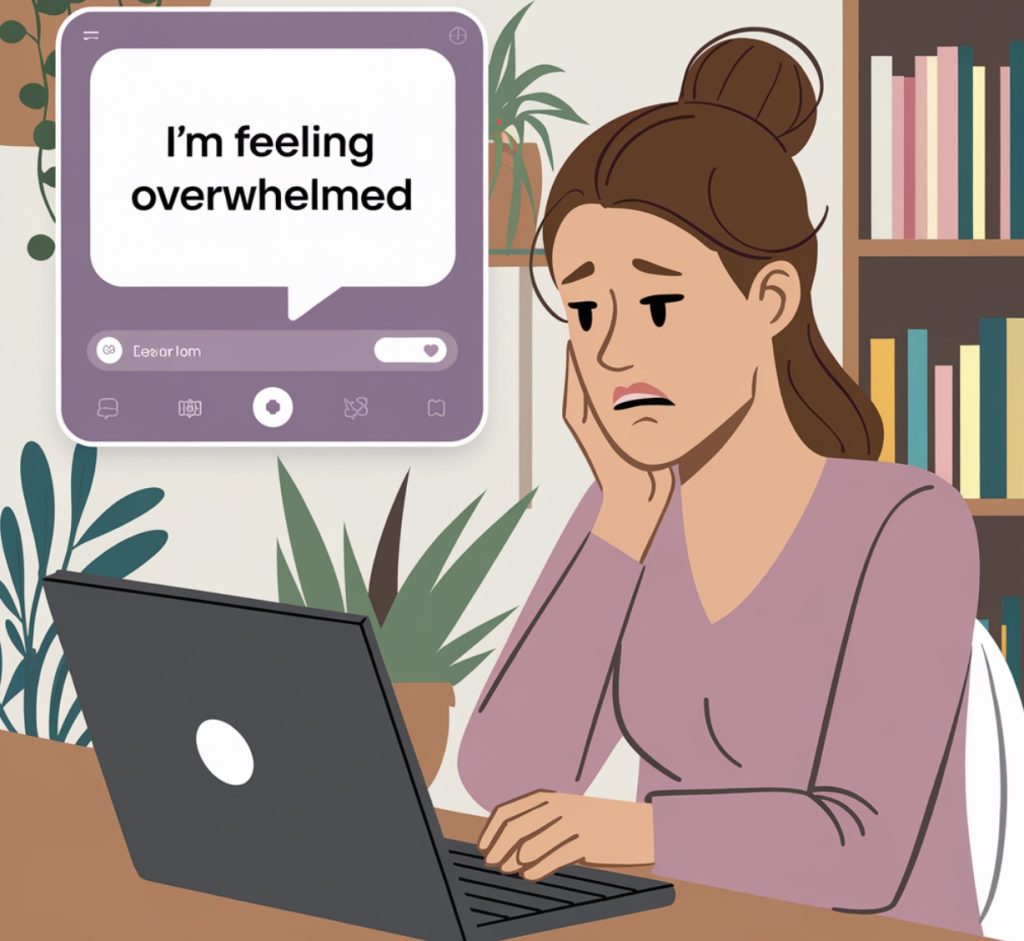
The COVID-19 pandemic triggered a global mental health crisis, with anxiety, depression, and stress becoming more widespread than ever. Traditional mental health services are overwhelmed, and getting an appointment with a psychiatrist can take months. And even when you do, the diagnosis is often subjective, which can delay the right treatment.
How Is AI Disrupting the Mental Health Space?
AI offers solutions that traditional methods can’t. It helps:
- Reach More People: Tools like chatbots are available anytime, anywhere, so more people can access mental health support, even those in remote areas.
- Reduce Stigma: AI tools can be used anonymously, which helps people feel more comfortable seeking help without the fear of being judged.
- Relieve Overburdened Systems: AI can handle many tasks—like monitoring symptoms or offering emotional support—freeing up professionals to focus on more complex cases.
The future of mental health care lies in blending AI with human expertise. According to a review in the Journal of Medical Internet Research, while its potential to enhance mental health care is immense, we still need to address ethical concerns, such as privacy and the need for human empathy in therapy.
What’s Next for AI and Mental Health?
AI isn’t going to replace therapists, but it’s a fantastic tool to support both patients and mental health professionals. It can help make care more personalized, accessible, and effective for everyone. As long as it’s implemented responsibly, AI could be a key part of solving the global mental health crisis.
AI Applications
Microsoft Rolls Out AI Agent—The Digital Employees Taking Over Work
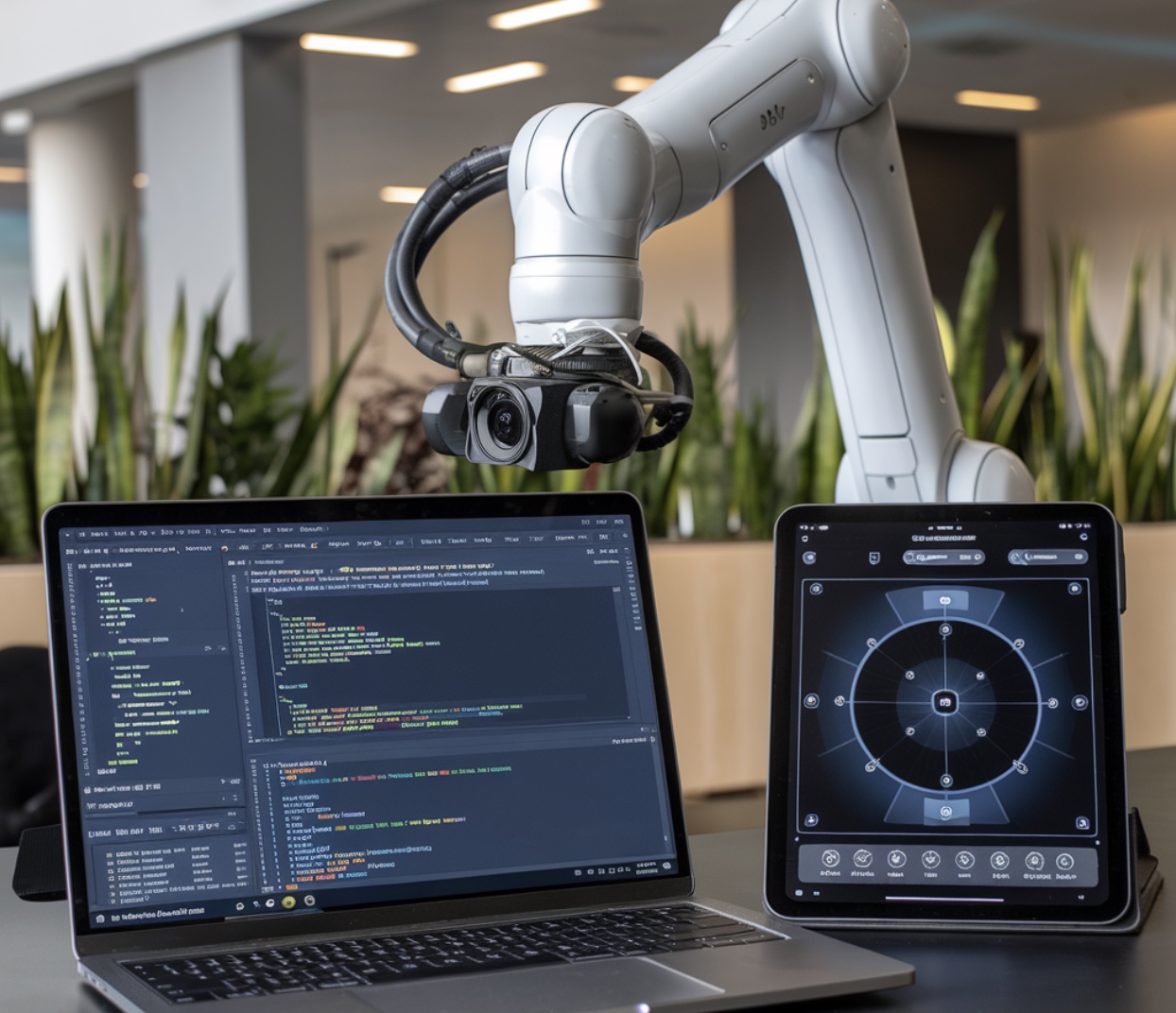
In the past few months, big players like Salesforce and HubSpot have launched AI-powered agents. Now, Microsoft is stepping in too a major announcement of AI agents through their Copilot Studio platform. AI agents, or AI employees.
So, what exactly are AI agents, and how can they help you? Let’s break it down.
What is Microsoft’s AI Agent in Copilot Studio?
Microsoft’s AI agents are like digital workers that can take over many tasks for you. Need help handling emails or customer requests? These agents can do that. Want someone (or something) to scan documents, prepare reports, or manage schedules? AI agents can handle those tasks, too.
So, what’s included in Microsoft’s AI agents?
- Pre-built templates: You can use templates for things like helpdesk support, HR tasks, or sales follow-ups. This means you don’t have to start from scratch.
- Custom agents: You can customize these AI agents to fit your exact needs. Can be processing customer inquiries or automating workflows. Like, anything you need.
- Rules and triggers: The AI agents can be programmed to respond automatically to events, like an incoming email or a customer request.
- Seamlessly integrated: Microsoft’s AI agents work with platforms like Salesforce and Microsoft Fabric, so they’ll fit right into your existing systems.
How are businesses using AI agents right now?
Here’s an example. McKinsey, a major consulting firm, is already using Microsoft’s AI agents. In their demo, the AI agent receives an email from a client requesting a meeting. The agent processes the request, checks their internal systems, and forwards everything to the right person. It even attaches all the necessary information. And it all happens automatically—just from an email.
More organizations like Clifford Chance, McKinsey & Company, Pets at Home and Thomson Reuters are too building their own customized agents to answer their corporate needs.
Microsoft has already launched Copilot Studio, but a more broad release is expected by mid-to-late 2025.
Why should you care about AI agents?
So, why should your business care about this new wave of AI agents? The answer is simple: time and cost savings.
Think about all the time spent on repetitive tasks—scheduling meetings, writing follow-up emails, or managing support tickets. These AI agents can handle it all. That means you and your team can focus on more important things, like strategy and innovation.
Here’s what AI agents can do for you:
- Save time by automating repetitive tasks.
- Reduce costs by taking over routine work that normally requires staff.
- Improve accuracy by performing tasks consistently without human error.
- Scale up quickly as your business grows without needing to hire more people.
What tasks can Microsoft’s AI agents handle?
AI agents are like having a digital assistant for your business. They can help with:
- Preparing reports and presentations
- Conducting competitor research
- Managing customer service inquiries
- Analyzing documents
- Writing code or monitoring system alerts
Imagine how much easier your workday would be with an AI agent handling these tasks for you.
Are AI Agents Replacing Jobs?
Of course, there are concerns about how AI might impact employment. Will these digital employees replace human workers? According to Charles Lamanna, a corporate vice-president at Microsoft, the goal is not to take jobs but to enhance them. AI agents are designed to handle the monotonous tasks, not the critical thinking and decision-making that humans excel at – at least for now. As Autogen AI agents, which are designed to debate and make decisions, continue to evolve, that could change in the future.
AI tools like these are being pitched as empowerment tools, helping employees become more efficient in their roles. Rather than replace workers, Microsoft sees AI agents as tools that allow people to spend more time on the meaningful aspects of their jobs.
The potential of AI agents is massive.
Especially as the AI industry is under pressure to prove that all the money invested in it will pay off. Investors have put billions into AI, expecting to see tangible results – not just in the tech advancement, but there’s a growing demand to see it directly improve business performance and generate a return on investment (ROI).
AI agents are one of the expected ways to show provide this. They can automate tasks, boost efficiency at anything from customer service to supply chain management.
But it’s not just about showing potential anymore—investors want to see real-world results. They’re looking for AI tools that can save money, improve processes, and increase revenue. The pressure is on AI companies to prove that these tools can work in everyday business, not just in controlled settings.
At the same time, AI needs to get even better to match human abilities. While AI agents can handle routine tasks, there’s still work to be done before they can fully take over more complex decisions. Closing this gap between what AI can do now and what it could do in the future is key to showing its full value.
Final Thoughts
It is now clear that AI agents and MAS will take over most of the repetitive work, reshape our economy the future of business.
But as with any technology, the true test will be how quickly businesses adopt these AI agents and integrate them into their daily workflows. Microsoft’s team envisions that AI agents will become as essential as personal computers in the workplace.
The question is: Are you ready to let digital employees take over the busywork?
AI Applications
AI Video Ads? Meta’s MovieGen Could Be Creating the Ads You Can’t Escape
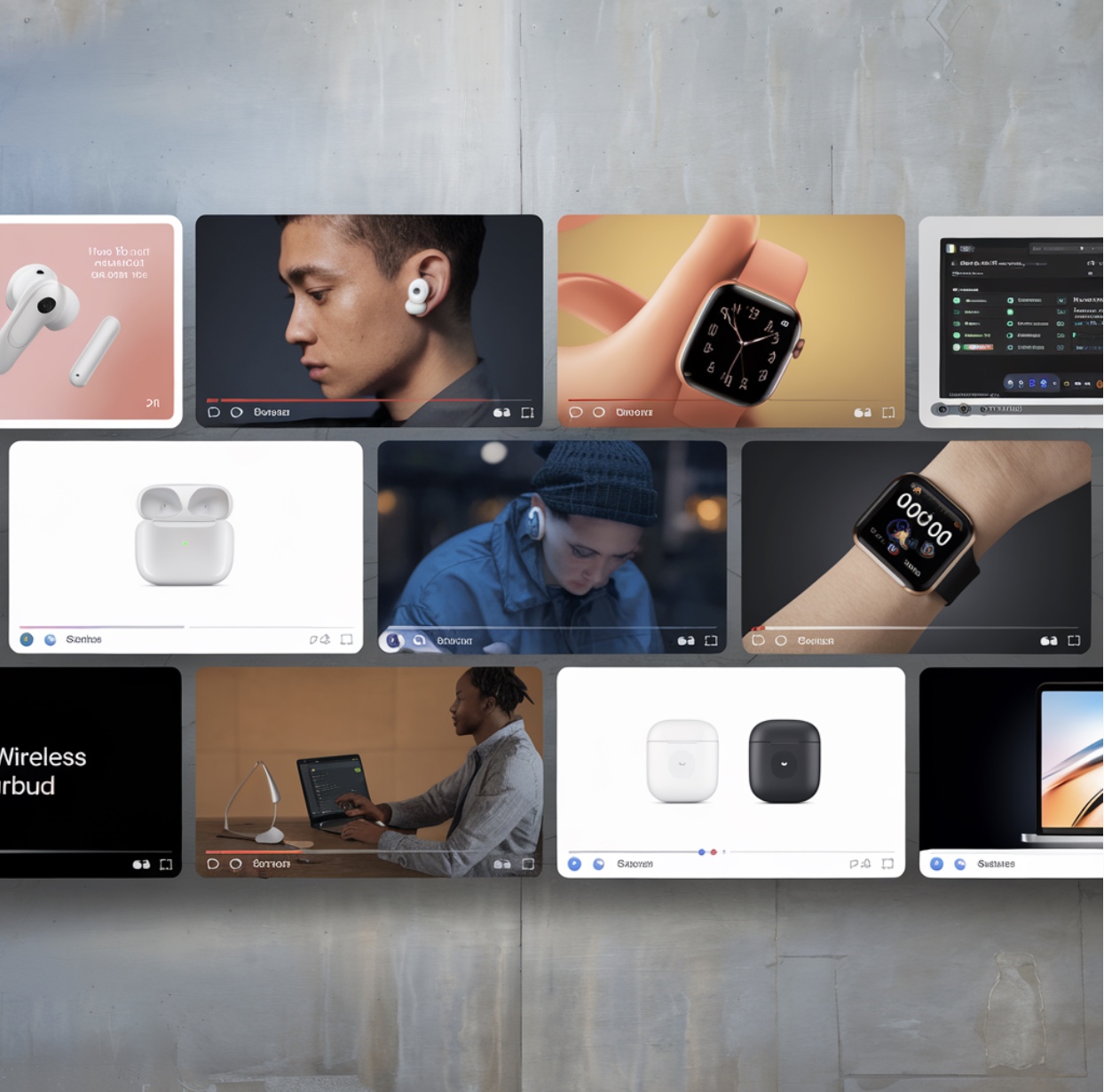
Are AI video ads about to take over our screens and, well, minds? Meta’s latest tool, MovieGen, may just make that possible. Although it wasn’t specifically designed for advertising, the potential applications for AI-generated video in marketing are clear. It seems that personalized, hyper-targeted ads are just around the corner, and in ways we’ve never seen before.
What is MovieGen?
MovieGen is powered by two advanced AI models:
- MovieGen Video: A 30-billion parameter system that generates 16-second, high-definition videos based on just a few words.
- MovieGen Audio: A 13-billion parameter audio model that creates realistic sounds, background music, and effects to match the video, syncing seamlessly with the content.
As outlined in their research paper, these models work together to both create dynamic, high-quality videos from scratch and edit existing ones. And, the fully-rendered video complete with audio.
The tools allows outstanding editing capabilities too. Want to change the background of your video? Simply type in a new description. Need to remove or add an object? MovieGen can localize those changes without affecting the rest of the scene.
Early users have demonstrated how the AI can alter a video of someone throwing a ball, replacing it with a watermelon while keeping the rest of the video intact. This level of precision makes MovieGen not just a video creation tool but an AI-powered editing suite that even non-experienced users can handle.
Why MovieGen Could Change Advertising Forever
Let’s talk examples. Say, a a fashion brand launching a new shoe line. With MovieGen, the brand can automatically generate hundreds of variations of the same ad, each one personalized based on:

- Location: A user in California could see a sunny beach setting, while someone in New York might see a bustling city backdrop.
- Behavior: A fitness enthusiast might see the shoes in an active, sporty environment, while a casual user might see them styled in everyday, urban wear.
- Preferences: Users who favor minimalist design might see a sleek, modern presentation, while others might get a more dynamic, colorful visual experience.
MovieGen also allows brands to adjust ads in real-time, making it easy to test different styles and messages. No need for a big production team, as adjustments can happen instantly based on feedback or results.
Ads You Can’t Ignore? The Good, The Bad, and The Future
MovieGen doesn’t just make ads easier to create—it makes them harder to ignore.
These ads can be personalized in a way that feels almost impossible to look away from. You’ll start seeing ads that seem like it was made just for you—your favorite colors, the type of content you engage with, all synced with audio that grabs your attention.
Clearly, MovieGen and its competing tools like Runway, Pika, and other generative AI tools for video editing and creation represents a huge leap forward. Personalized ads that these tools allow to produce so easily will lead to higher engagement, better conversions, and lower production costs. And for Meta, MovieGen could supercharge its advertising business, giving brands tools to create immersive, interactive ad experiences across their platforms.
What’s inevitable? With AI-generated content flooding platforms like Instagram, Facebook, and WhatsApp, there’s a good chance we could be bombarded with ads so well-crafted for us that they’re inescapable.
Meta’s Ad Business is transforming to AI Video Ads Business?
Meta has long been a leader in data-driven advertising, but MovieGen could take it to the next level. With AI video and audio generation incorporated into their advertising tools, Meta could offer brands an all-in-one platform to:
- Create, edit, and optimize ad content in real-time.
- Reach users with hyper-personalized, highly engaging ads that are crafted specifically for them.
- Minimize production costs by eliminating the need for large-scale video shoots and post-production editing teams.
Meta’s MovieGen is here to change how ads are both made and delivered. With the ability to create thousands of personalized AI videos ads at once, the very essence of the way people interact with brands is likely to change dramatically. These ads won’t just be seen—they’ll be experienced, in ways that are immersive, dynamic, and extremely personal. For better or worse.
-
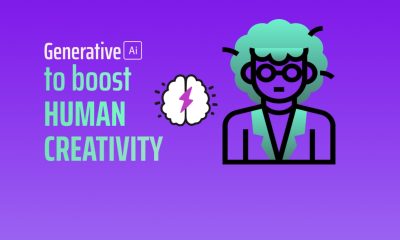
 AI Applications7 months ago
AI Applications7 months agoHow Human Imagination and AI Team Up to Create Awesome Content
-
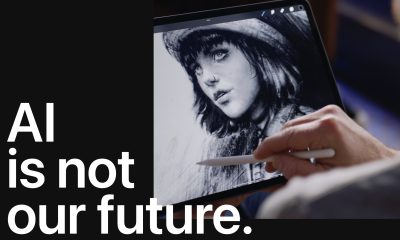
 AI Applications6 months ago
AI Applications6 months agoProcreate on Generative AI: “We’re never going there”
-
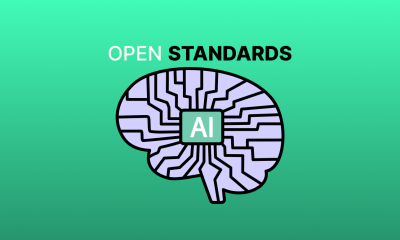
 AI Regulation6 months ago
AI Regulation6 months agoOpen Standards for Responsible AI: The Engine Driving Ethical Innovation
-

 AI Tools11 months ago
AI Tools11 months agoBest Generative AI Tools for Video Editing and Creation








